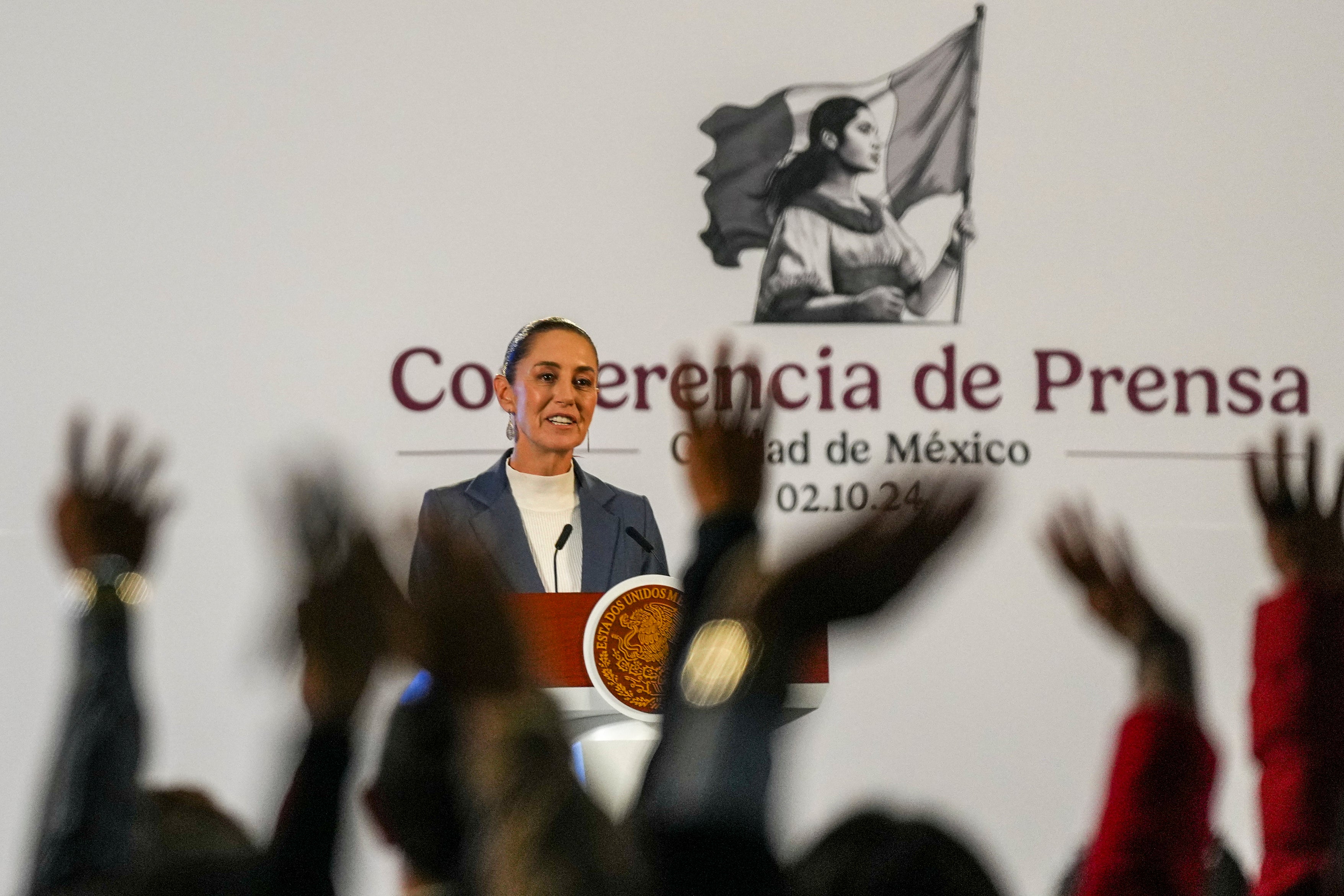Mexico to eliminate 7 independent regulatory, oversight agencies. What does it mean for the future?
Mexico's Senate has voted to eliminate seven independent regulatory and oversight agencies

Your support helps us to tell the story
From reproductive rights to climate change to Big Tech, The Independent is on the ground when the story is developing. Whether it's investigating the financials of Elon Musk's pro-Trump PAC or producing our latest documentary, 'The A Word', which shines a light on the American women fighting for reproductive rights, we know how important it is to parse out the facts from the messaging.
At such a critical moment in US history, we need reporters on the ground. Your donation allows us to keep sending journalists to speak to both sides of the story.
The Independent is trusted by Americans across the entire political spectrum. And unlike many other quality news outlets, we choose not to lock Americans out of our reporting and analysis with paywalls. We believe quality journalism should be available to everyone, paid for by those who can afford it.
Your support makes all the difference.Mexico’s Senate has voted to eliminate seven independent regulatory and oversight agencies, a move that critics warn will cement the ruling party’s power and avoid outside scrutiny.
President Claudia Sheinbaum calls it a money-saving measure, arguing that the government can more efficiently handle functions like freedom of information requests, anti-monopoly enforcement and energy-market regulation.
However, foreign investors and critics fear this could open the door to favoritism and a lack of transparency.
What does this mean for the public's right to know?
The Senate vote Thursday — which will likely be confirmed by two-thirds of state legislatures controlled by Sheinbaum's Morena party — eliminates the independent body that had powers to force government departments to hand over information based on requests filed by citizens. Now, presumably, each government department will decide what to hand over.
Adrián Alcalá, head of the National Institute for Information Access, said each department may be able to set its own rules and impose its own criteria. “When you fragment something, it tends to disappear,” Alcalá said.
Did people really see any value in the agencies?
In the first nine months of 2024, people submitted more that 275,000 requests for government files, and more than four million freedom-of information requests have been received since the National Institute for Information Access — formerly known by another name — was set up 20 years ago. Those requests include everything from government budgets and contracts, to labor and human rights issues. Sarahí Salvatierra, of the public policy research group Fundar, said "transparency and informing the public are the cornerstones of democracy.”
What are foreign governments and investors worried about?
The Senate also voted to eliminate the federal anti-monopoly commission, raising concerns about potential trade disputes.
The American Chamber of Commerce said in a recent report it worries the changes “could result in disputes with our trading partners,” because the U.S.-Mexico-Canada trade agreement requires independent anti-monopoly authorities. The agreement comes up for review in 2026.
The ruling party has already exempted Mexico's state-owned oil and energy companies from monopoly rules. The move “opens the door to opacity and corruption, as well as encouraging a concentration of power that favors monopolistic practices,” the Mexican Employers Federation said in a statement.
The Senate also voted to eliminate the regulatory commission that oversees the energy and oil markets, raising concerns for foreign investors who worry there will be little to protect a foreign company that invests in a power generating plant in Mexico.
The American Chamber of Commerce worries the changes, together with a previous reform that requires all judges to stand for election, “could significantly increase uncertainty, affecting the continuation of projects like North American energy competitiveness.”
What else is disappearing?
The Mexican government is also eliminating two independent agencies that measured progress in fighting two of the country's key problems: poverty and the under-performing public school system.
Why does the government say this is necessary?
Sheinbaum said the independent agencies — which controlled their own staff and decided what to investigate and how to spend their budgets — were plagued by corruption and overspending. She said earlier this month that “there will be more transparency, but there won't be corruption.”
The president has insisted that transparency rules and the right to information will be preserved, and that “the public will be able to easily review the functioning, the spending and everything the Mexican government does.”
What really angered the government was that the anti-monopoly commission would not make exceptions for the debt-laden, corrupt and inefficient state-owned energy companies that the ruling party sees as its personal fiefdoms. Sheinbaum said Friday the commission “devoted itself to stopping state-owned companies.”
What will happen next?
It's not clear. The government still has to set up the offices that will replace the old agencies, and write the rules by which they will be governed. Until then, the public will just have to trust the government.
____
Follow AP’s coverage of Latin America and the Caribbean at https://apnews.com/hub/latin-america